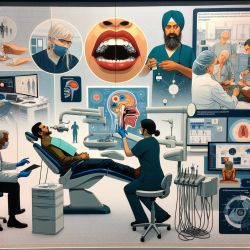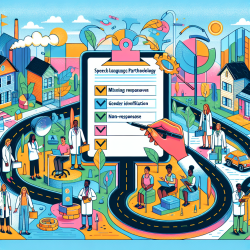Introduction
The recent research article titled "Outpatient, dental care of adult vulnerable patients under general anaesthesia—a retrospective evaluation of need for treatment and dental follow-up care" provides crucial insights into the dental treatment needs and outcomes for vulnerable adult populations. This blog aims to distill the findings of this study and explore how practitioners can leverage these insights to improve their skills and outcomes in dental care for vulnerable adults.
Understanding the Research
The study conducted a retrospective analysis of adult patients requiring dental treatment under general anaesthesia (GA) over a decade. The subjects were categorized into four groups: people with disabilities, dementia, dental phobias, and addictions/psychosocial disorders. The main findings highlighted the high dental treatment needs among these groups, with a particular focus on the importance of regular follow-ups to prevent dental emergencies.
Key Findings
- High Treatment Needs: The study found significant dental treatment needs among vulnerable adults, with the highest needs observed in individuals with dementia and addictions.
- Low Failure Rates: Despite the complexity of cases, the failure rate of treated teeth was relatively low at 4%, indicating effective treatment outcomes under GA.
- Importance of Regular Follow-ups: The research emphasized the necessity of regular annual recalls, supplemented by 2-4 oral hygiene sessions, to prevent dental emergencies.
Implications for Practitioners
Practitioners can enhance their skills and improve outcomes for vulnerable patients by integrating the following strategies based on the research findings:
- Comprehensive Pre-GA Assessments: Conduct thorough pre-GA assessments to tailor treatment plans effectively and anticipate potential complications.
- Focus on Preventive Care: Implement regular follow-up schedules and preventive care measures to minimize the risk of dental emergencies and improve long-term outcomes.
- Interdisciplinary Collaboration: Work closely with other healthcare providers, including speech-language pathologists, to address the holistic needs of vulnerable patients.
- Data-Driven Decisions: Utilize data and evidence from research to inform treatment decisions and enhance the quality of care provided to vulnerable populations.
Encouraging Further Research
The study provides a foundation for further research into the dental care needs of vulnerable adults. Practitioners are encouraged to contribute to this growing body of knowledge by conducting their own studies and sharing insights with the broader healthcare community.
Conclusion
The findings from this study underscore the critical importance of tailored dental care and regular follow-ups for vulnerable adult populations. By implementing data-driven strategies and fostering interdisciplinary collaboration, practitioners can significantly enhance the quality of care and outcomes for these patients.
To read the original research paper, please follow this link: Outpatient, dental care of adult vulnerable patients under general anaesthesia—a retrospective evaluation of need for treatment and dental follow-up care.










